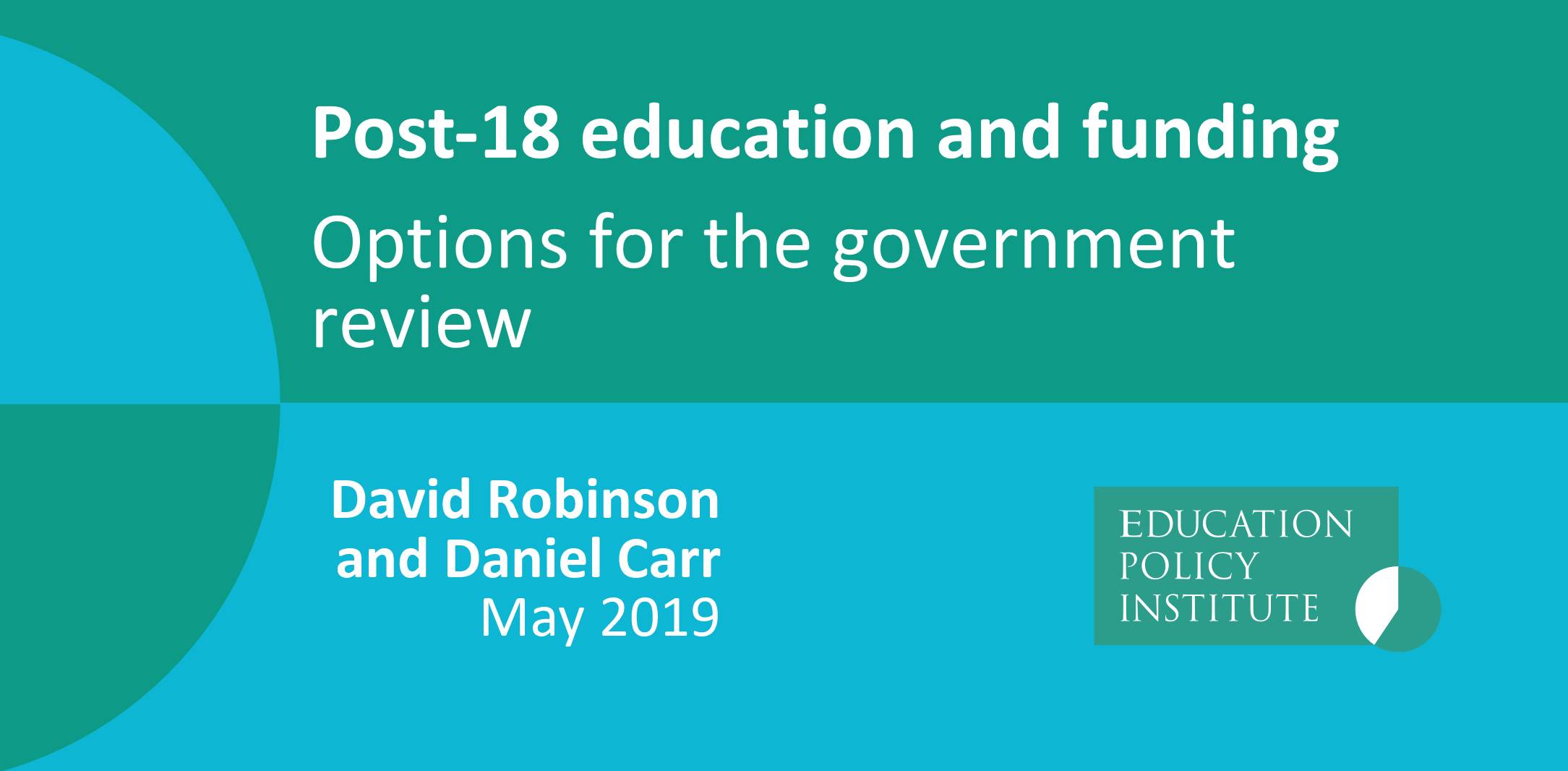Today, Philip Augar, chair of the independent panel tasked with reviewing the post-18 education and funding system in England, has launched the panel’s recommendations and findings.
The Review is the first to examine post-18 education funding in almost a decade, and as well as considering tuition fees, considers the funding of wider post-18 qualifications and further education.
You can read the Independent panel’s report here.
Commenting on the Review’s findings, Rt Hon David Laws, Executive Chairman of the Education Policy Institute (EPI), said:
“The Augar Review has involved a serious and thoughtful analysis of some of the strengths and weaknesses of our system of post-18 education funding, and its conclusions deserve to be carefully considered notwithstanding the current political turbulence and the uncertainty over the likely stance of the next Prime Minister.
In particular, the Review makes a strong case for better funding of qualifications below degree level, and for moving to a fairer and more coherent system of support for all post-18 qualifications.
“EPI will be looking closely at the individual policy proposals to consider their likely impact and cost, and will publish a more detailed assessment following their release.”
EPI Analysis: Post-18 education and funding options
Earlier this month, the EPI published a detailed report examining the evidence on the various post-18 policy options for the government. The report scrutinises policy proposals on tuition fees, student support, and non-HE funding; outlining the evidence for each policy option, before setting out recommendations on how the government should proceed.
Key findings from the report include:
- Proposals from the government and opposition parties to reduce or abolish tuition fees, or lower interest rates, would have a regressive impact.
- To help address inequities between higher and further education funding, maintenance loans should be extended to 19-23 year olds pursuing vocational, level 3 qualifications.
- The government should avoid a system in which tuition fees vary by subject or university.
- Imposing a minimum academic standard to access university loans – a ‘UCAS tariff floor’ – should not be introduced without strong evidence that the majority of those denied loans would be better off pursuing other education routes.
You can read the full report here.
EPI will publish additional analysis of the panel’s findings and recommendations soon.



